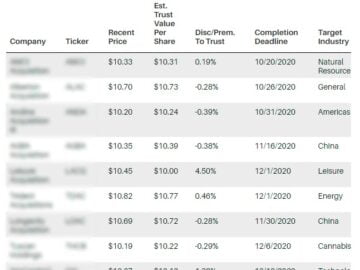Seeking out great stocks to buy is essential, but many would say it’s even more important to know which stocks to steer clear of. A losing stock can eat away at your precious long-term returns. So, figuring out which stocks to trim or get rid of is essential for proper portfolio maintenance.
Even the best gardens need pruning, and our team has spotted a few stocks that seem like prime candidates for selling or avoiding. Continue reading to find out which three stocks our team is staying away from this week.
Headwinds against e-commerce car vendor Carvana (CVNA) had already been intensifying before the sizable ramp up to its vehicle inventory in the first quarter. Management recently admitted that it accelerated its car buying business at the wrong time, during a worsening economic environment, causing investors to flee the stock in search of greener pastures. The company could continue to burn through cash at an alarming rate as it faces threats to the value of its inventory.
“It has become clear over the past few months that the company is facing serious challenges to the business,” Morgan Stanley analyst Adam Jonas wrote in a note to clients after he downgraded CVNA to Equal Weight from Overweight and slashed the price target by 70% to $105, down from $360. “By the company’s own admission, it had accelerated growth at precisely the wrong time into a consumer slowdown leaving a major mismatch between capacity and demand, creating a liquidity crunch,” he continued.
The company’s liquidity issues are likely to be compounded as the Fed boosts benchmark interest rates, making it more expensive to take out loans. With its business model, Carvana is also at risk of a decline in used car prices as that would devalue its inventory, and a pullback in prices is likely as interest rates rise.
During Carvana’s most recent quarterly announcement on April 20th, the company reported a bigger-than-expected quarterly loss along with revenue that beat analyst expectations. Results showed a $1 billion increase in equity and $3.275 billion in debt.
Carvana may look like a bargain, down more than 80% from its ATH just a few months ago, but with interest rates rising and growing concerns of a looming economic recession, the company could be further wrung out as economic growth slows.
The railroad industry faces several challenges that threaten operating ratios across the entire sector, including a labor shortage, capacity constraints, and service issues. On Wednesday, the Association of American Railroads (AAR) reported an astounding 8.1% year-over-year decline in weekly rail traffic. These hefty cost headwinds will likely weigh heavily on Canadian Pacific Railway (CP) and delay visions of recovery in the second half of the year.
Analysts are not overly optimistic about Canadian Pacific. The 18 analysts offering a first-quarter forecast for CP see a 5% year-over-year decline in revenue and expect 0.70 per share in earnings, representing a 17% YOY decline.
Several analysts have slashed their target for CP in recent weeks on execution concerns against a challenging macroeconomic backdrop moving into the second half of the year, including Raymond James’ Steve Hansen. “We are trimming our target prices on Canadian Pacific Railway to account for a weaker-than-expected start to the year and incremental concerns over the slowing economic backdrop,” the analyst wrote to clients.
CP’s share price is down 5% over the past month, and the downward momentum will likely continue until headwinds abate.
New York-based LivePerson, Inc. (LPSN) is best known as the developer of the Conversational Cloud, a software platform that allows consumers to message with brands. The company tops our list this week after Q4 financial results that point to a substantial slowdown in organic revenue growth that is unlikely to meaningfully improve until fiscal 2023.
Management signaled a shift in the growth strategy ahead to focus more on generating earnings in 2022 rather than gaining enterprise customers. The slower growth profile, powered by a steady return toward more normal in-person working trends, could translate into weaker earnings than Wall Street is hoping for.
The company predicted sales in the first quarter of about $125 million, translating into a 16% boost. Revenue for the full year will climb by less than 20% to about $560 million, whereas most Wall Street pros were looking for that 2022 sales figure to be closer to $600 million.
No less than nine firms downgraded LivePerson after the disappointing call. Among the analysts to revise their ratings was Evercore ISI analyst Peter Levine who downgraded LPSN to In-Line from Outperform and slashed the price target to $20, down from $75 following the company’s “sub-par results and a weak outlook.”













